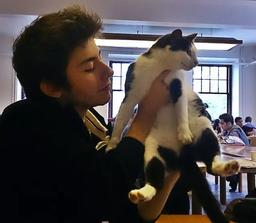In this lesson, you will learn about the conditional and wish suffix -sE. It is used to convey one's desires, and the necessary conditions that have to be fulfilled. It can be attached to nouns and adjectives, or it can be combined with other tenses. Let's see:
| Conditional | Turkish | English |
|---|---|---|
| Conditional Suffix | Bu iş bitse gideceğim. | I will go if this work ends. |
When using -sE to convey wishes and desires, we almost always use keşke at the beginning of the sentence. Keşke means something like 'I wish' in English, but it doesn't have personal inflection.
| Desire | Single | Plural |
|---|---|---|
| First person | Keşke işe gitsem. | Keşke işe gitsek. |
| Second person | Keşke işe gitsen. | Keşke işe gitseniz. |
| Third person | Keşke işe gitse. | Keşke işe gitseler. |
Keşke always conveys the wishes of the speaker, so it can be translated only as 'I wish' or 'We wish'. The translations of the table above are: I wish that I/you/he/she/it/we/you/they went to work.
Conditionals are more complicated than as shown here, and you will learn about the rest of it later on!

